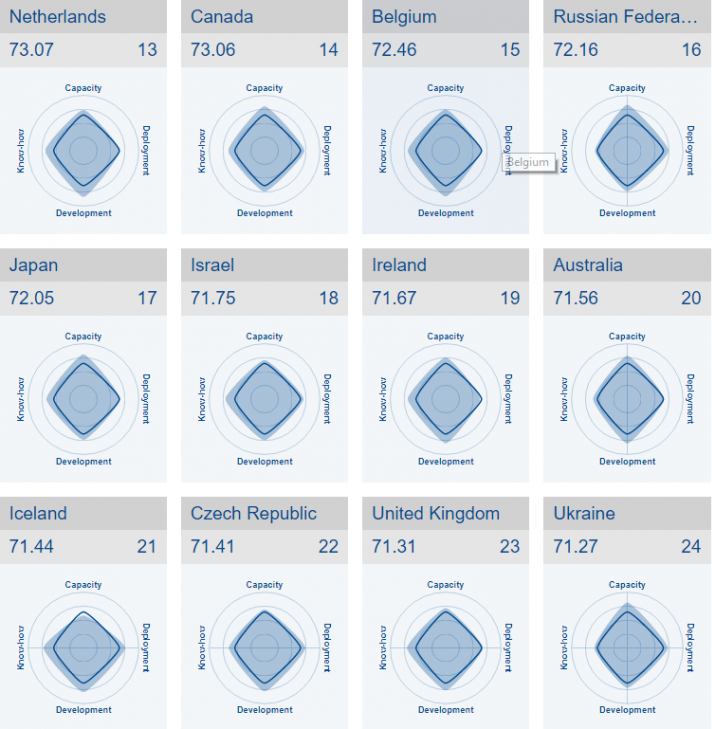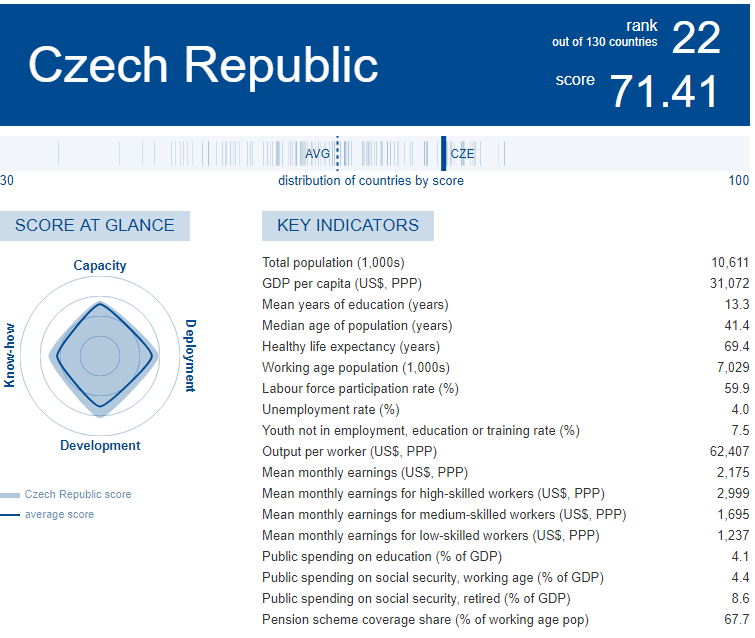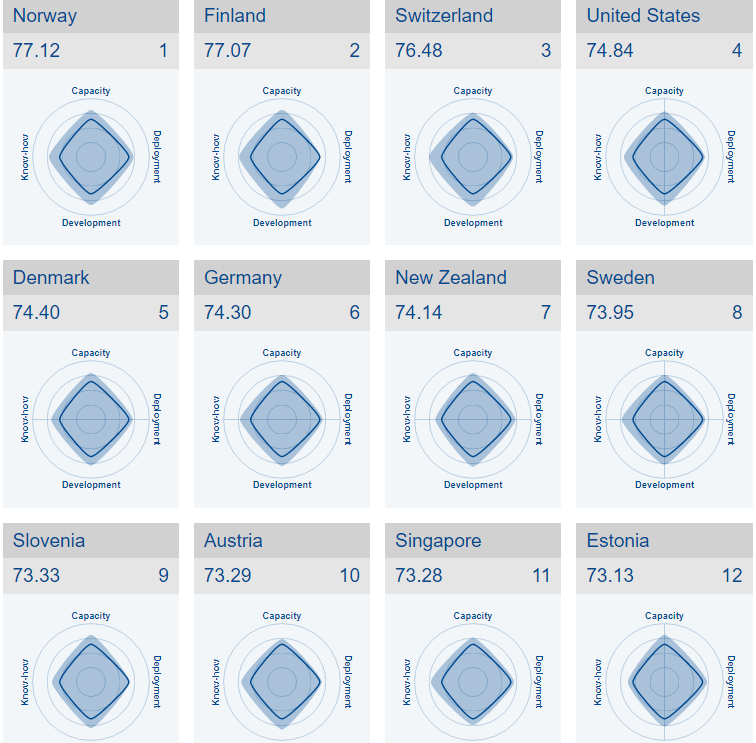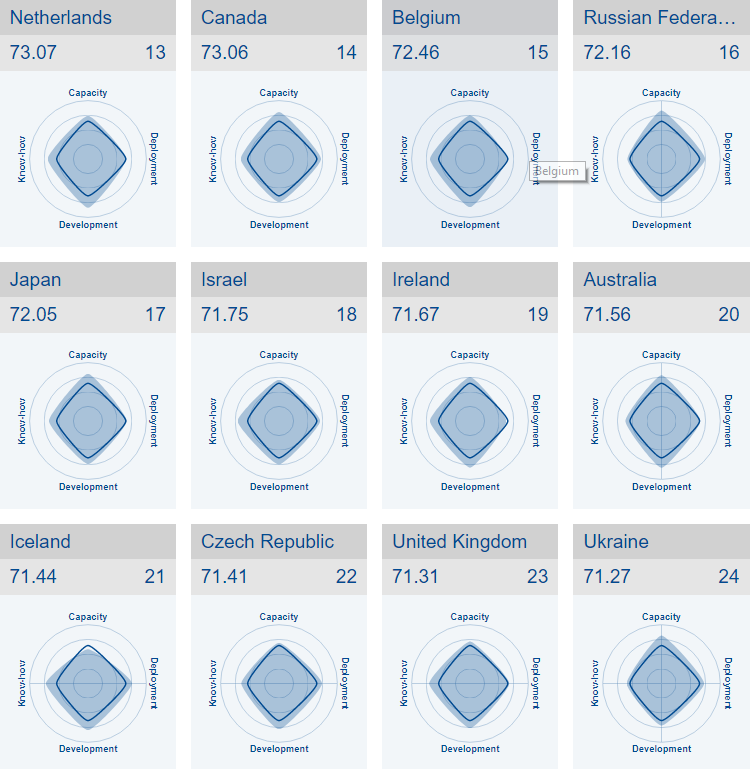
The Czech Republic ranks 22nd in the WEF Global Human Capital Report 2017. The report covers130 countries altogether, 21 countries from Eastern Europe and Central Asia. With an average index score of 67.36, the region ranks in third place globally, after North America and Western Europe. It includes several remarkable success stories with regard to successful human capital development, including Slovenia (9) and Estonia (12), which both score within the overall Index top 15, and the Russian Federation (16), Czech Republic (22), Ukraine (24) and Lithuania (25), which all score above the 70% threshold.
The Czech Republic ranks 67th in the Capacity subindex, 22nd in the Deployment subindex, 15th in the Development index and 21st in the Know-how index. The Capacity subindex quantifies the existing stock of education across generations; the Deployment subindex covers skills application and accumulation of skills through work; the Development subindex reflects current efforts to educate, skill and upskill the student body and the working age population; and the Know-how subindex captures the breadth and depth of specialized skills use at work. Formal education enhances people’s capacity, and while applying and acquiring skills through work further develops people’s human capital. Therefore, maximizing opportunity for all entails lifelong access to acquiring education and skills and working-age access to deploying and developing skills through work.



Look at the country overview.
Key findings of the report are available here.
The index is an assessment of a country’s human capital—both current and expected—across its population. The Report defines “human capital” as the knowledge and skills people possess that enable them to create value in the global economic system. The Index aims to quantify key concepts and provides a practical tool to policy-makers and business leaders. It formulates a human-centric vision of the future of work that recognizes people’s knowledge, talents, creativity and skills as key drivers of a prosperous and inclusive economy. The Report argues for the rationale of building up deep, diverse and resilient talent pools and skills ecosystems that allow for inclusive participation in good quality, skilled jobs by the largest possible number of people.
Read also a commentary by LinkedIn.